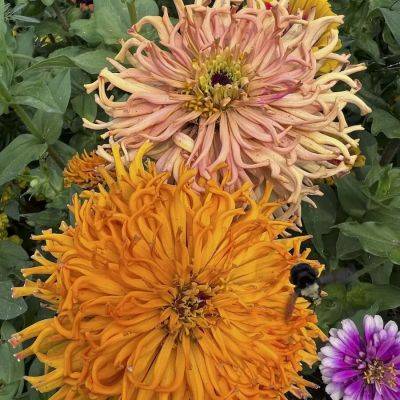WHAT’S NOT TO LOVE about zinnias? Organic seed farmer and breeder Don Tipping of Siskiyou Seeds and I both vote an emphatic “yes” in favor of making zinnias a part of every garden year.
Ornamental plants Ideas, Tips & Guides
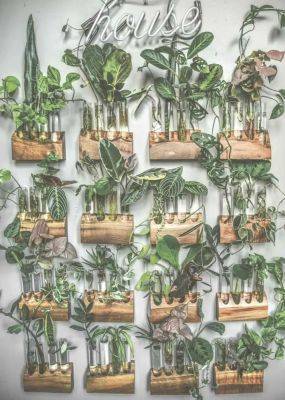
Propagating houseplants, with hilton carter
I,FOR ONE, have a number of houseplants that would look a whole lot better right now if given a pinch or two or three, plus I could potentially enjoy the benefit of more plants from those trimmings, whether to keep, or better yet, to share. A new book by plant stylist Hilton Carter demystifies multiple methods of making more plants, including by various types of cuttings, and he filled me in, including on why rooting in water is his favorite medium of all.
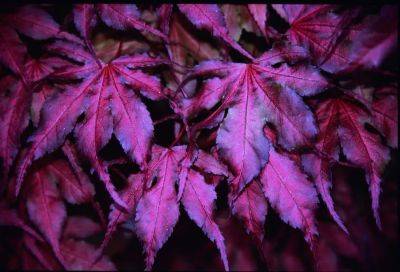
The world of japanese maples, with the nichols brothers
I CONFESS to something of a weakness for Japanese maples, and I suspect I’m not alone. Now, thanks to breeding work by experts like today’s guests, there are more and more varieties being made available that are suited to a widening range of climate zones and garden conditions, meaning the circle of maple lovers can keep on growing.
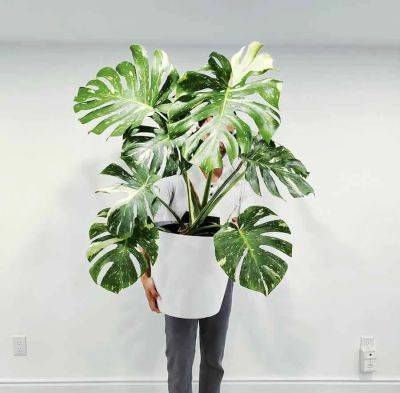
Collectible houseplants, with darryl cheng
SOME PEOPLE collect art, and others collect vintage cars or maybe stamps or coins. Darryl Cheng collects houseplants. And in his latest book, “The New Plant Collector,” Darryl suggests some gorgeous possibilities with detailed guidelines for figuring out how to make a good match for your growing conditions before you invest.
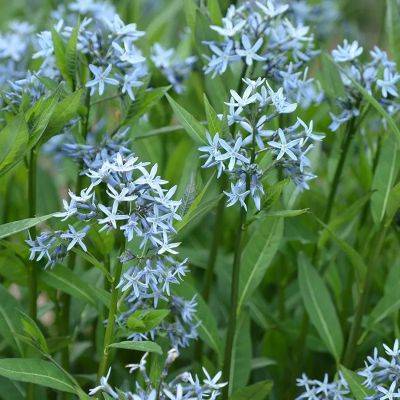
Amsonias: dependable, beautiful bluestars, with mt. cuba’s sam hoadley
EARLY ON IN making my garden decades ago, I bought a nursery pot of bluestar, or Amsonia, at a native plant sale, and planted it in a border here. It has never asked anything of me, never had any pests or diseases, and just keeps delivering sky-blue spring flowers and vivid gold fall color, year in and year out, and looking pretty handsome in between.
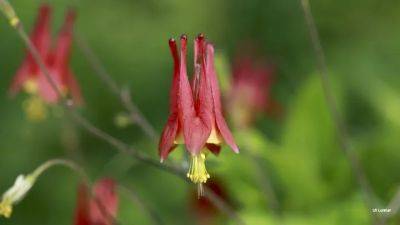
State of the native-plant movement, with rebecca mcmackin
MAYBE MORE than any other topic, the use of native plants has consistently figured among the top garden trends in recent years. Just how popular is the movement toward a more ecological focus in the way we design and care for our landscapes?
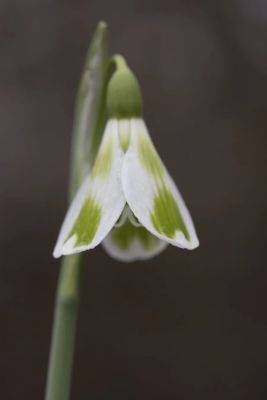
Galanthophilia! a passion for snowdrops, with david culp
DAVID CULP is a self-professed Galanthophile, a lover and passionate, longtime collector of snowdrops in all their various incarnations. He’s also a host of the annual Galanthus Gala symposium, which happens the first weekend of March in Downingtown, PA, and virtually online, too, for those of us who want to join in without even leaving home, as I did last year, and will again this time around.
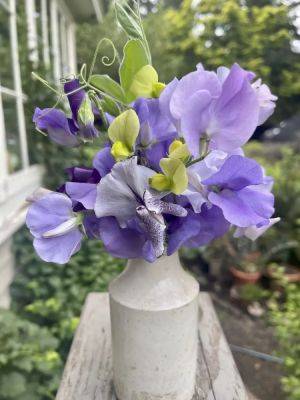
Time to succumb to sweet peas, with matt mattus
EVERY YEAR when I get to the sweet pea listings in the seed catalogs, I think: This is the year, the year I’ll organize some supports in the garden for them, and indulge in their unmatched extravagance of color and fragrance.
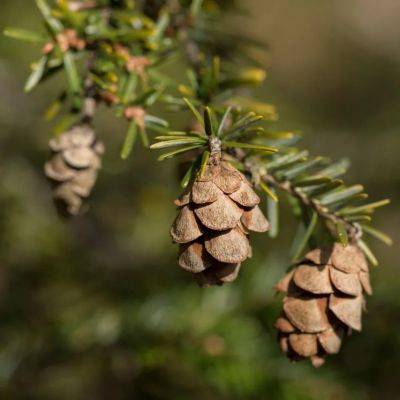
Ecological resolutions, with uli lorimer of native plant trust
LIKE EVERYONE around this time of year, I get into a “looking back while looking ahead” combined mindset. Today I want to do just that, but with a sort of ecological filter, taking stock of how things in the garden fared in the bigger environmental picture and what opportunities lie ahead for me to read nature’s signals even more closely and be an ever better steward of the place.
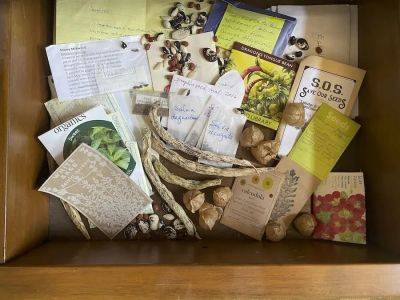
Seed catalogs to love, with jennifer jewell
HO-HO-HO: It’s seed season, among other festive reasons to celebrate in December. Today I invited a similarly seed-obsessed friend, Jennifer Jewell, to help me curate some seed-catalog recommendations you might not otherwise browse, and to talk seeds in general.
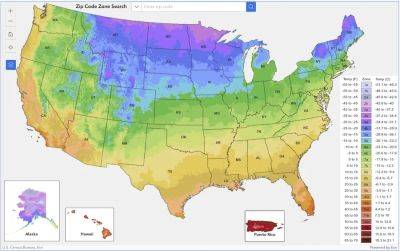
New usda plant hardiness zone map, with todd rounsaville
YOU NO DOUBT have seen news that the USDA Plant Hardiness Zone Map was just updated, and that half the country once again got reclassified a half-zone warmer just as many of us did after the previous update of the map in 2012. But what does it all mean to gardener’s practically speaking?
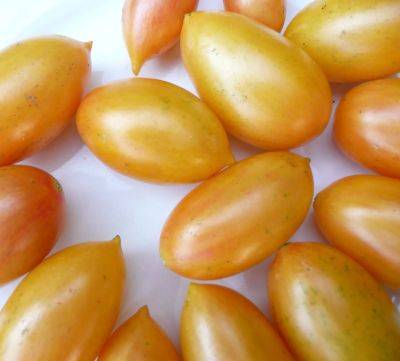
Seed shopping, with lia babitch of turtle tree seed
LET THE seed shopping season begin. The 2024 offerings are being loaded into seed-catalog websites, and the earliest print catalogs are already arriving in our mailboxes, as if to help soften the separation anxiety we may feel if we’ve already put our gardens to bed for the winter.
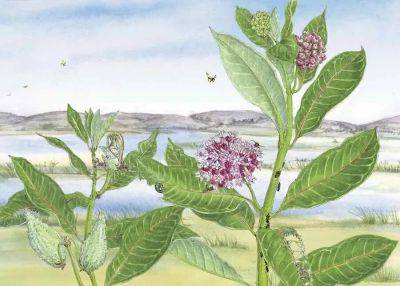
Diverse, powerful milkweeds, with eric lee-mäder
MOST OF US may automatically think “monarch” after hearing the word “milkweed,” or vice versa. And that’s in fact a critical and intimate relationship, the one between monarch butterflies and native milkweed plants.
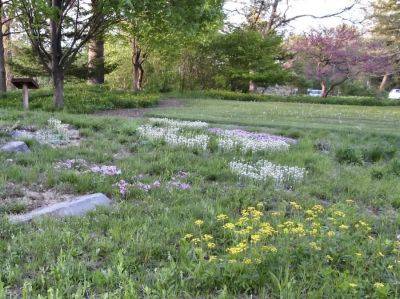
Cornell’s take on the native lawn, with todd bittner
REDUCING THE footprint of our lawns has been a key environmental message for gardeners in recent years, since lawns lack biodiversity and involve huge amounts of pollution between fertilizers, herbicides, and the gas used in mowing. But what to cultivate instead? That is the subject of a nearly 15-year native lawn research project at Cornell Botanic Gardens in Ithaca, New York, with some interesting insights.
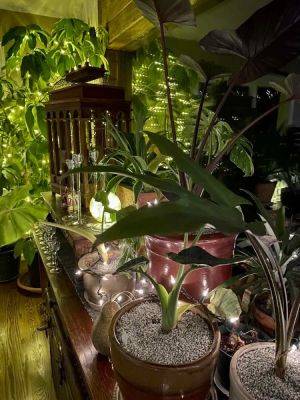
Getting ready to stash the tender plants, with marianne willburn
IT IS NOT TIME quite yet here for what I call the mad stash, storing those non-hardy plants for the winter that we wish to keep alive for another year of service. But it is time to make some plans to do just that.
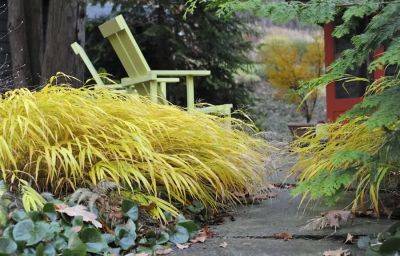
High-impact obsessions: using gold and variegated foliage, with ken druse
EVERY GARDENER has their obsessions—or maybe a nicer way to say that might be to call it their “signature plants,” the ones that help define their garden. I confess to a serious issue with gold-leaved things. And last time I checked my friend Ken Druse had more than a few plants with variegated leaves of all kinds of daring patterns and hues that catch your eye in his New Jersey garden.
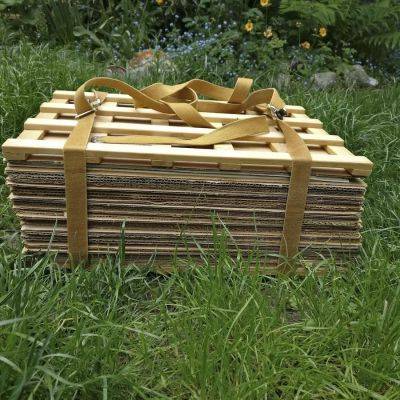
Pressing plants, with herbarium curator linda lipsen
I SAW NEWS of a new book called “Pressed Plants” recently, and it got me thinking about my grandmother and one of the many crafts she enjoyed way back when. Grandma made what she called “pressed-flower pictures,” bits of her garden that she carefully dried, arranged on fabric and framed under glass. And some of those still hang on my walls. It also got me thinking of the 500-year-old tradition of pressing plants for science and the herbarium world.
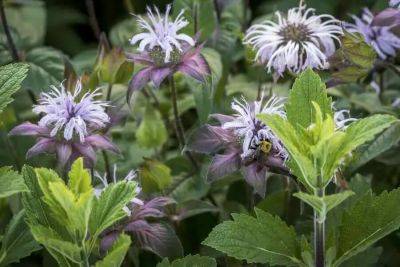
‘more plants is always better:’ immersive landscapes, with claudia west
“Plants are the mulch,” Claudia said then about making immersive landscapes that engage humans as much as they do pollinators and other beneficial wildlife. So it’s tempting to choose the plants we buy for our gardens based on their looks alone. Claudia and her colleague, Thomas Rainer, of Phyto Studio, who are co-authors of the groundbreaking 2015 book “Planting in a Post-Wild World” (affiliate link), have tougher criteria for which plants
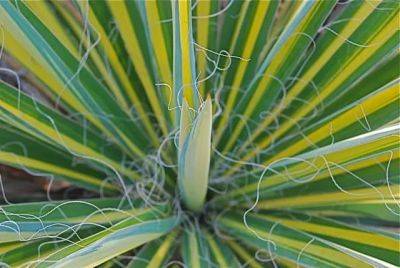
Soldier on, yucca ‘color guard’
‘Color Guard’ was brought back from Japan by a man who knows a thing or two about foliage plants, hosta breeder Paul Aden of Long Island (who introduced ‘Sum and Substance,’ for instance, and so many other standouts). Despite the very different swordlike shape, its creamy-yellow-centered leaves are not unlike those of the most dramatically variegated hostas, but the yucca is a creature of sunnier spots.This is a perennial-like shrub for every day, and for gardens in most every zone, or at least Zones 5-10, growing in clumping fashion to 2 to 3 feet across and high. That is, except in spring, when 6-foot-tall stalks erupt with fragrant white bell-shaped flowers. Mine (still in its nursery container) has been showing off despite being “temporarily” plunged into a large pot on my terrace since May. It will
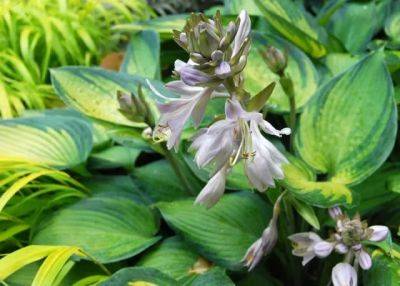
What did you say your favorite hosta was?
WE TALKED HOSTAS MONTHS AGO, in the dead of winter, when they were just twinkles in a gardener’s eye, or images pulled from color catalogs and memory.
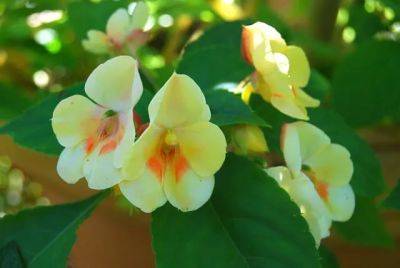
Annual keepers: things i’ll re-order next year
I’m not usually much of an impatiens lover, but ‘Fusion Glow’ and the Fusion series from the giant breeders Ball Horticultural will have a place here again next year for its mounding habit and free-flowering, and of course its lovely color (one of several in the series). Also on my list to be sure to track down for next year: that elusive ‘Terra Cotta’ viola (above) I couldn’t find locally this year and should have ordered in advance. Come to think of it, Viola ‘Blue Bronze’ is on the list, too; I just didn’t love the substitutes I grew this year, as I have complained before. Oh, and that variegated Abutilon I found without a label on it (which I have since ID’d). It’s named
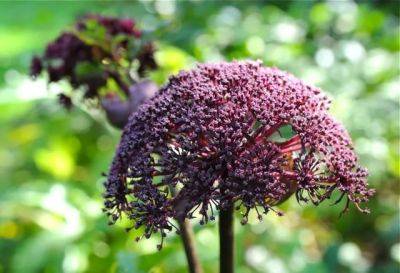
Say what? the bud of all buds on angelica gigas
A. gigas is a star of high-to-late summer, with 6-to-8-inch domed flowerheads of the darkest wine color in much of August or longer. But for me the show begins them those insane-looking buds form, always prompting garden visitors to ask “What’s that?” Indeed.This most dramatic of angelicas wants moist soil, and is adaptable in my area to sun or shade, but seems happiest in bright shade (the old happy medium of gardening conditions).To have a successful colony, as with any biennial, you need to be vigilant and not accidentally weed out your self-sown babies each spring. You also will need varying generations of plants: some at blooming age (one year old) and some babies (to bloom next year). So I suggest to get started you buy yourself some p
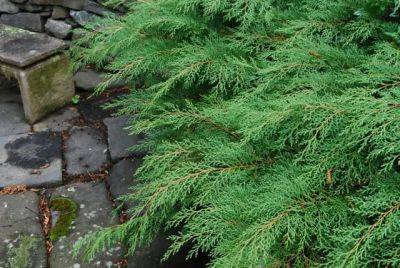
Beloved conifer: microbiota decussata
The plant was first discovered near Vladivostok in the 1920s, above the treeline, where it survived the deep cold of Siberian winters, making it a Zone 3-hardy creature, supposedly.Although it is a groundcover species, don’t expect it to grow in the dark: That was the mistake made at first when Microbiota reached the American market in any numbers maybe a decade ago. Saying a plant can handle some shade is different from saying it’s a shade plant; this one wants half a day of sun or more, I think, and wholesalers who propagate a lot of it say sun to part sun on their labels. In warmer zones, protection from afternoon sun is important, and in fact Microbiota isn’t a fan of the hottest zones at all.Though Microbiota (seen above in winter color) is said to have few if any pest and disease problems, I will confess to this: I have killed a number of them, without ever
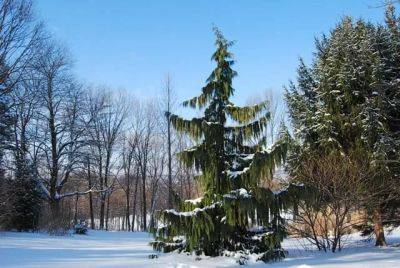
Beloved conifers: weeping alaska cedar
I’ve stayed put long enough to outgrow my early mishaps, and have some favorite evergreens to share including the weeping Alaska cedar, which I have always known as Chamaecyparis nootkatensis ‘Pendula’ (above, in my far borders to the west of the house). Lately it has been placed in a new genus, Xanthocyparis, but my old habits die hard. Two weeping Alaska cedars grow here now, the first a 40th birthday present from my garden mentor; the other (above) a few years younger. Each one is about 25 feet. Though they are said to reach 60 or even 90 feet in the wild (Alaska to Oregon), half that is the exp
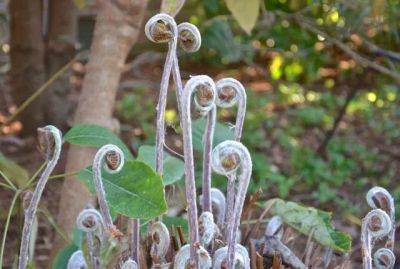
Fern secrets, fern sex and fern gardening, with tony avent
Ferns have been on the planet for more than 300 million years—about twice as long as flowering plants—and in recent years breeders with sophisticated eyes have introduced extra-showy varieties for our gardens.No wonder there is a focus on ferns, since they are naturally deer-resistant, mostly adapted to shady gardens, and hey, you don’t need to deadhead them since they’re not flowering plants. You can’t attribute any of those qualities to, say, a daylily.On my radio show and podcast, Tony treated me to a 101 on ferns and how to use them in the garden (that’s a tiny section of the 28-acre private nonprofit Juniper
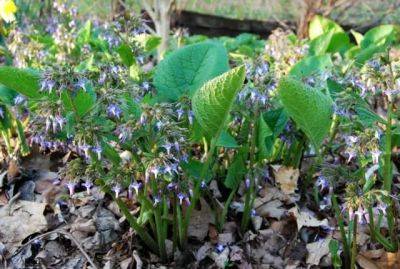
A plant i’d order: trachystemon orientalis
Blue-flowered plants seem to always have that mystique. While still partly leafless in early spring, about mid-April here, Trachystemon sends up its showy blue flowers on stems perhaps 10 inches tall in my conditions, and gradually after that the big, heart-shaped leaves, about the same height, finally fill in, making a pleasing bold statement, if not a spectacular one.Good news, bad news: Trachystemon will do in sun or shade, and even in dry shade at the roots of trees (or in damp spots). This rhizomatous do-er seems to be happy with total neglect, almost anywhere (Zones 5 or 6-9). It outcompetes many weeds—a great trait in a groundcover, too. But this kind of cooperative nature also means it is a thug in climates like England’s, where it has been naturalized for as long as anyone can remember (so the Pacific Northwest, for instance, would be a potential romping grounds).I am about to move some of my little blue ocean to the hardest places i
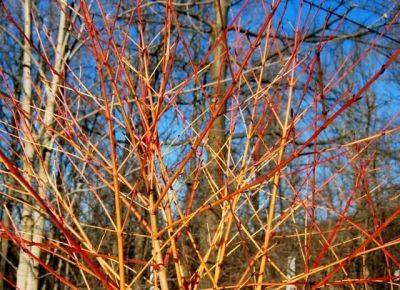
Great shrub: cornus sanguinea ‘winter flame’
I noticed that my friend Bob Hyland at nearby Loomis Creek Nursery is counting his twiggy blessings, too, this week—with an ode on his website to Salix ‘Swizzlestick,’ a distinctive corkscrew willow he grows as a dramatic 60-foot hedge.I’m making myself content with much less, but even a little ‘Winter Flame’ (hardy to Zone 4) warms the winter-weary soul. My young plant hasn’t reached full size of 8-10 feet, though at 4 feet it produces a show of yellow-, orange- and reddish-tinged stems that read as coral to my eye.The Dutch breeder of ‘Winter Flame,’ Andre van Nijnatten, has also developed a smaller-stature version called Cornus ‘Arctic Sun’ that is earning high pr
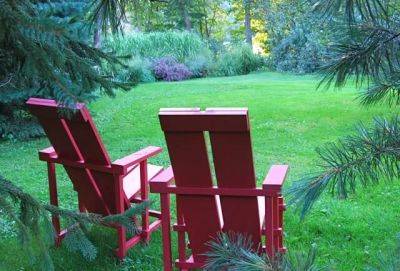
Taking a long look at lespedeza thunbergii
A rescue mission a few years back landed it in the sun again, and that’s what the bush clover wanted.Lespedeza thunbergii, a legume or pea relative as the shape of its flowers and foliage quickly gives away, is hardy in Zones 4-9. Give it sun, and not much else—well, except a very large space to grow into, as the arching stems of a mature bush clover will reach 6 feet across or wider, and stands nearly 6 feet high. My resurrected, relocated ‘Gibraltar’ is closing in on 8 feet across today.Various white forms, like ‘Albiflora’ or ‘White Fountain,’ are another possibility (I like the gaudier purple) and because he must always outdo us, plantsman Tony Avent offers the 4-by-6-foot ‘Spilt Milk,’ with purple flowers but wildly variegated foliage as its name implie
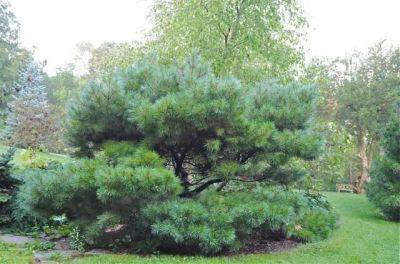
Beloved conifer: my not-so-dwarf-now white pines
First, the disclaimer. I know I said the plant is specifically Pinus strobus ‘Nana,’ and that’s how mine came to me, but here’s the wrinkle: ‘Nana’ is kind of a grab-bag name for many relatively compact- or mounded-growing Eastern white pines, a long-needled species native to Eastern North America, from Canada to Georgia and out to Ohio and Illinois.Today, you can shop for named varieties that are really compact, with distinctive and somewhat more predictable shapes, like‘Coney Island’ or ‘Blue Shag’ (to name two cultivars selected by the late Sydney Waxman at the University of Connecticut, who had a particular passion for this species).I could have pinched the tips of the new growth, or candles, by half each year to keep
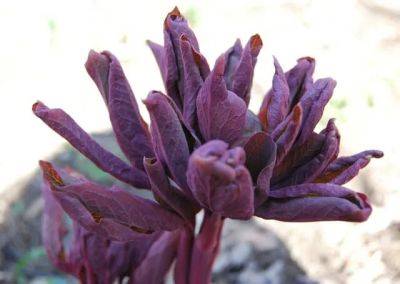
How plants work, with linda chalker-scott
And though most leaves are green—why are some not green at all, or at certain times of year?The new book, “How Plants Work: The Science Behind the Amazing Things Plants Do” answers those questions and more. (Enter to win a copy at the bottom of the page.)Its author, Linda Chalker Scott, joined me on the public radio show and podcast to explain. Linda is an Extension Urban Horticulturist with Washington State University, a
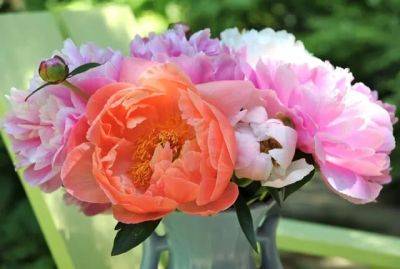
In bloom: kousas, peonies, honeysuckles, a rose
PEONIES—the big, traditional herbaceous ones, above—are in their peak moment. I grow them in an out-of-the-way spot for cutting only, not in the garden, as I have mentioned before. Have any that didn’t bloom so well? Some tricks of getting a peony’s full cooperation.KOUSA DOGWOODS are having a really good year in my garden, with a proliferation of bloom, above, that I hope will be followed by good fruit set. Last year, the various Cornus kousa didn’t put on such a big show, and then you may also recall the near-disaster I had with my unusual weeping one. Glad I didn’t cut it down.DAME’S ROCKET, or Hesperis matronalis, is to some a wildflower and to others a w
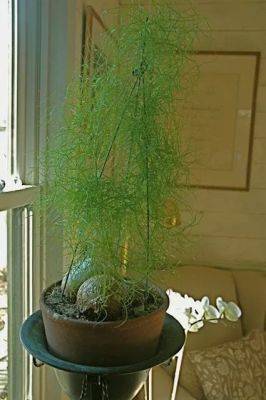
Bowiea: of houseplants and youtube
Lovers of succulents and oddball plants in general grow bowiea with most of its showy, round green bulbs above the soil surface, and with its twining filigree of stem-like foliage trained up onto some kind of support. That’s how the plant in my dining room (shown) is growing right now. Probably neither is what happens in the wild, but no matter; let the foliage climb up something or let it dangle; bury the bulbs a lot or hardly at all.Order a baby at Logee’s, or better yet order three and cluster them in one pot for company. Each bulb can reach 8 inches in diameter over time, and as for the foliage—there seem to be no end to it (until it simply stops).What matters is that you give it bright light and gritty soil and respect bowiea’s desire to sleep all winter. Stop watering it when the tendrils start to turn yellow and dry up in fall, then water not at all or very rarely when it is sleeping. I usually give it a little drink perhaps once a month in winter out
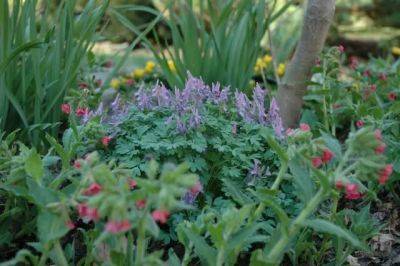
Slideshow: 8 favorite garden ephemerals
GET THEM WHILE THEY LAST: That’s the message with ephemerals, plants that are happy to pop up early, do their pretty thing, then tuck back in when the heat comes on. I grow a lot of them, brightening up the first weeks of a spring garden that would otherwise be mostly minor bulbs in April-into-May, meaning more pleasure out of the same space.
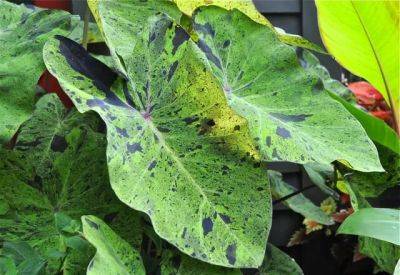
Colocasia ‘mojito:’ keeping our love alive in winter
Colocasia ‘Mojito’ (Zone 7b-10), like all its cousins that we call elephant ears or taro, is a heat-loving plant that’s also hungry and thirsty. I grew it in a bright spot in a potting soil with lots of compost, and stood a big, deep saucer underneath—something I wouldn’t do with most other plants outdoors for fear of rotting them off. I don’t use chemical fertilizers, but I mixed in some all-natural organic formulation at planting time and occasionally added fish and seaweed emulsion to the water I gave it.In food production, prevalent in Asia, the Pacific and the Caribbean, it’s the starchy tubers that are the thing—bigger is better. In ornamental horticulture, the above-ground portion is where it’s at, and here’s where the tricky part comes in about overwintering some of the most spectacular new taros—including ‘Mojito,’ and the better known ‘Black Magic.’ They don’t produce big tubers that can be lifted, like you might a canna or some of the elephant ears, and stashed dry in the cellar.
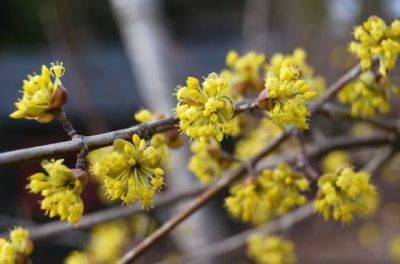
Before forsythia, cornus mas
I N A WEEK OR SO I’LL ENJOY THE BORROWED VIEW of several giant old forsythia, left behind from a long-gone farmhouse that stood just down the road. I love seeing them through the naked woods, giant waterfalls of gold, but I don’t grow forsythia in the garden here, as you may recall.
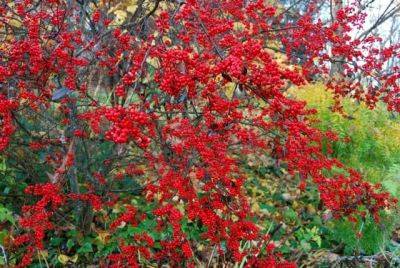
Whither goest my winterberries?
(Note on Gallery: Clicking on a thumbnail gives you a large, higher-quality image.)Winterberry hollies are native to swampy areas from Canada south to Florida, from Wisconsin and Missouri east. Despite their heritage in wetlands, I grow my plants in normal to dry soil, at the edges of my hilly outer fields. I just don’t have wet lowland to offer on my windy hillside.Though they’ll fruit much better in a moist year than a dry one (as with all fruiting plant
Popular Topics
Our site greengrove.cc offers you to spend great time reading Ornamental plants latest Tips & Guides. Enjoy scrolling Ornamental plants Tips & Guides to learn more. Stay tuned following daily updates of Ornamental plants hacks and apply them in your real life. Be sure, you won’t regret entering the site once, because here you will find a lot of useful Ornamental plants stuff that will help you a lot in your daily life! Check it out yourself!
